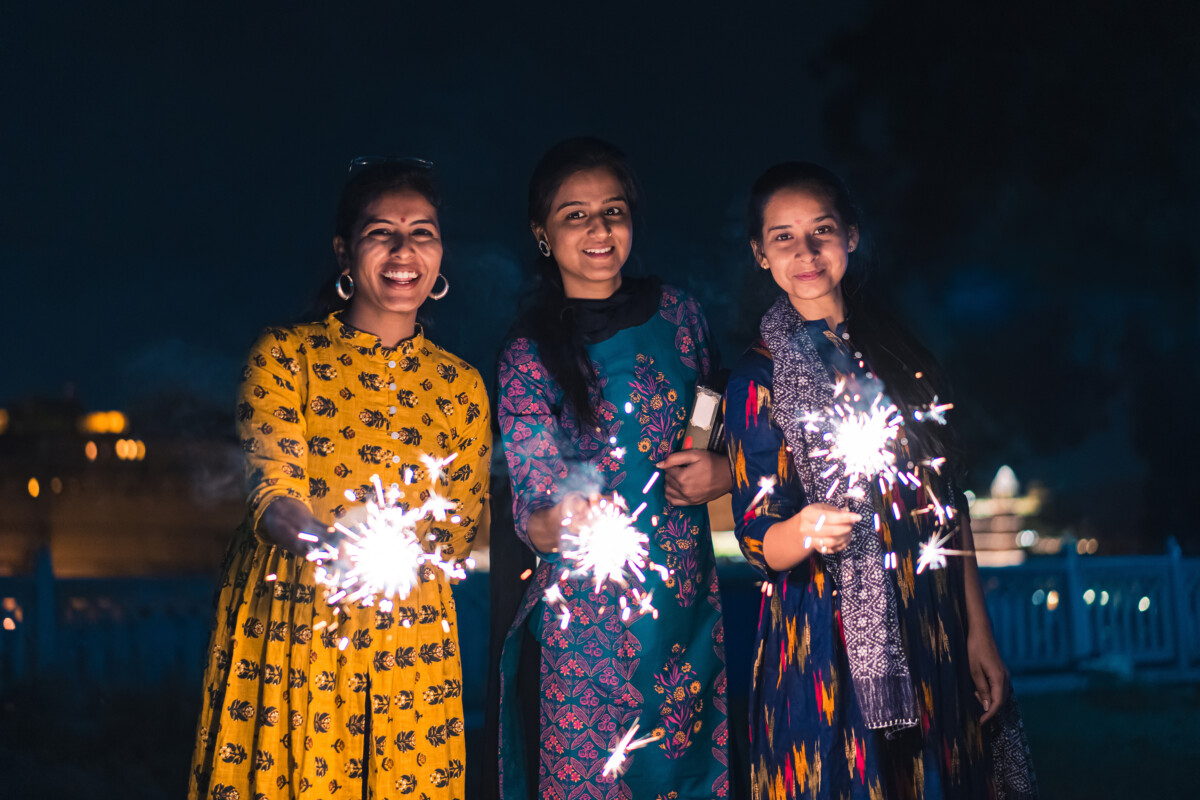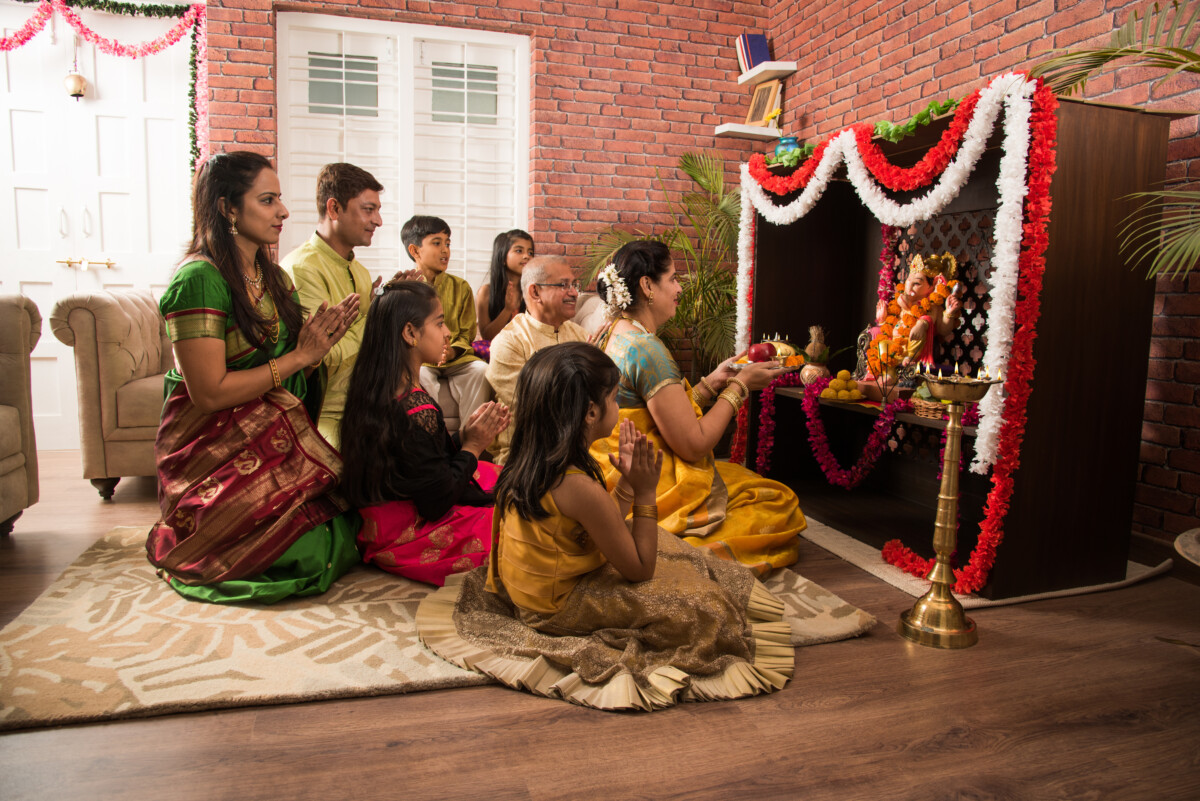Do students who are Hindu have the right to practice their religion?
Yes! The First Amendment to the U.S. Constitution expressly protects each individual’s right to freely exercise their religion. This includes every religion and all students in public school, so Hindu students have the same rights as students of any other religion. Public schools are required to be religiously neutral and cannot show preference based on religious belief.
Some federal laws expand these protections and many state laws provide similar or additional protections. Even if a student is not in public school, they may have rights to observe their religious beliefs as provided in school policy or local law.
This page provides general guidance on how students can request and use religious accommodations in support of their Hindu religious beliefs and practices. We also provide templates for commonly requested accommodations due to Hindu holidays, ceremonies, or dietary restrictions.

What is a religious accommodation?
A religious accommodation is any reasonable change to school policy or practice that will allow a student to observe their religious beliefs. Religious accommodations come in many forms and they are based on what is needed for the individual student to observe their religious beliefs. You can request accommodation for a religious observance, even if it is unique to your family’s religious beliefs and practices, as religious customs can be different among Hindus (just as they can vary within any other religion).
Religious accommodations are usually requested in writing by a student’s parents and sent to the appropriate school official. See below for detailed steps on how to request religious accommodations.
What kinds of religious accommodations are possible?
Some common religious accommodations include:
-
- Excused absences from school (full or partial days)
- Changes to exam or assignment schedules
- Changes to meals to accommodate dietary restrictions
- Exceptions to dress codes (clothes or accessories)
- Excusal from or adjustments to religiously-inspired school activities (for students who do not observe that religion)
Keep in mind that religious accommodations should help the student adjust when or how they complete school work, but the student still needs to complete their assignments, exams, and other curriculum requirements. The main consideration is whether the student is asking for a reasonable adjustment to the way things are usually done so that they can observe their religious beliefs. Even though school policies generally apply, a reasonable accommodation may require exceptions or deviations from policy.
Typically, public schools must work with the student to provide religious accommodation except in limited circumstances. This is discussed in more detail below.

When should I request religious accommodation?
Students may not need to make a religious accommodation request for every religious observance. Many times, you can follow school policy and discuss your request with teachers or administrators to get what you need. For example, if a student would like the day off to observe Diwali, their parents can request the day off in the same way they would request any other excused absence and ask teachers to provide an opportunity to make up any exams scheduled on that day.
Religious accommodation requests often become necessary after the student’s initial request is denied, when school staff are not familiar with Hindu beliefs, or when the request is unique.
How do I request religious accommodation?
The process for requesting a religious accommodation will vary for each school, but the general steps to give your request the best chance of success are outlined below.
1. Review School Policy
Review your school’s policy on excused absences or accommodations and make sure you understand:
- How to make the request (usually in writing and signed by a parent).
- Where to send the request (usually to a teacher or administrator).
- When to submit the request (give advance notice when possible or as soon as possible for unexpected events).
2. Prepare a Written Request for Religious Accommodation
When submitting a request, make sure to:
- Clearly state that the student is requesting a religious accommodation.
- Include the date submitted and the date the accommodation is needed.
- Be specific about the request (e.g., which days the student will be out, the religious holiday or practice, and how missed work will be handled).
- Save a copy of the request or send it via email for record-keeping.
3. Follow Up
If you don’t hear back from the school within a few days:
- Reach out to the teacher or administrator to confirm they received the request.
- Be prepared to discuss the request and explain the religious reason behind it.
- Educate yourself about your religious belief so you can clearly explain its significance to school officials.
- Cooperate with school staff and work toward a solution. If the exact request cannot be accommodated, the school should propose alternatives. You are not required to accept an alternative that prevents the student from observing their religious beliefs.
4. Get a Final Decision
Request a prompt decision from the school.
- Many accommodations are granted as requested or with minor clarifications.
- If a request is denied, ask for a written explanation and the reason for the denial.
- Review the school’s policy to see if you can appeal the decision or discuss it with another administrator.
- Consider whether the decision is fair and neutral. If non-religious exceptions or other religious accommodations are allowed, similar accommodations should be granted for all religious beliefs, including Hinduism.
- Religious accommodation requests should only be denied in very limited circumstances, which are discussed below.
What if my request for religious accommodation is denied?
In the public school setting, the government cannot violate a student’s right to free exercise of their religion. Any rules or policies that may affect religion must be neutral – meaning religious practices or beliefs cannot be targeted or treated differently. Students have numerous rights in public school (see Dept. of Education Guidance issued in 2023), including accommodation of their religious beliefs and practices when the request is reasonable. If a public school completely denies the student any reasonable religious accommodation, it should only be after thorough discussion and consideration by administrators.
Public schools violate a student’s First Amendment rights if their denial of reasonable religious accommodation will substantially burden the student’s religious practice. Public schools cannot substantially burden a student’s religious practice unless they show that their action was narrowly tailored to protect a compelling governmental interest. That is a high bar to meet.
Remember that this is a federal standard for public schools, and students may have similar or greater protection under local laws or specific school policies.







































